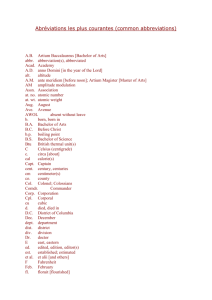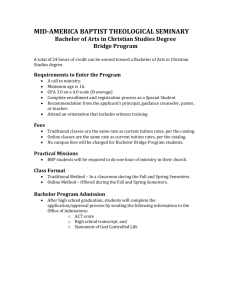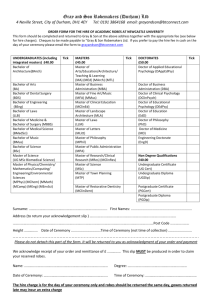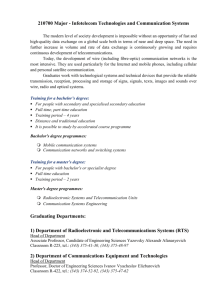NOMENCLATURE STANDARD - Postsecondary Education Quality
advertisement
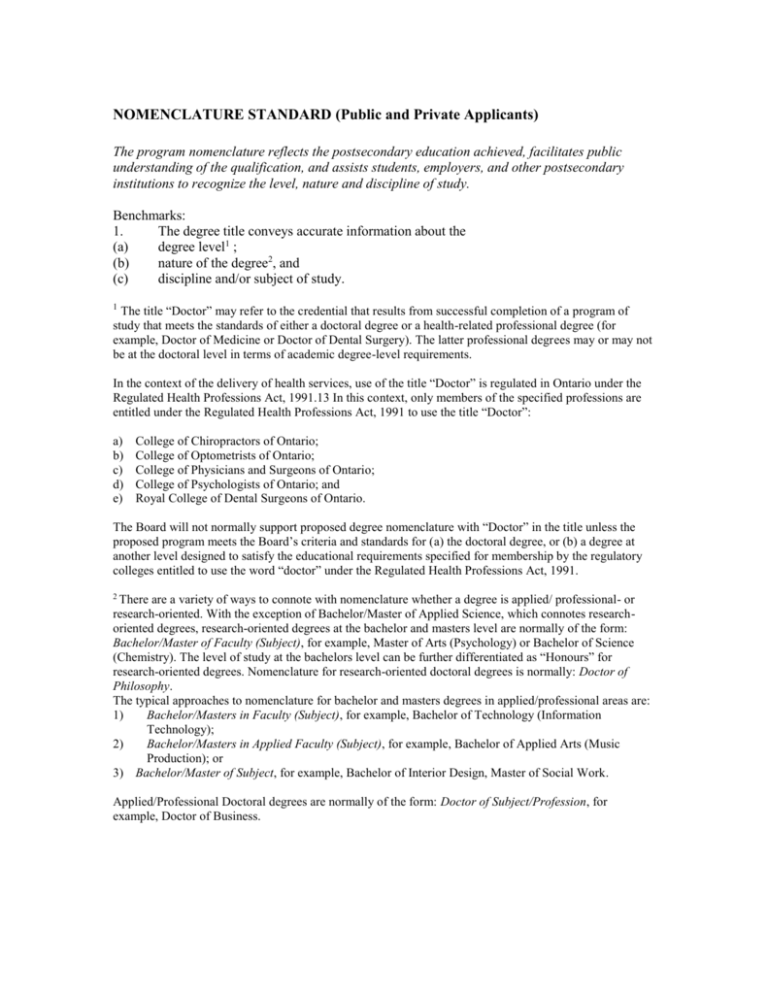
NOMENCLATURE STANDARD (Public and Private Applicants) The program nomenclature reflects the postsecondary education achieved, facilitates public understanding of the qualification, and assists students, employers, and other postsecondary institutions to recognize the level, nature and discipline of study. Benchmarks: 1. The degree title conveys accurate information about the (a) degree level1 ; (b) nature of the degree2, and (c) discipline and/or subject of study. The title “Doctor” may refer to the credential that results from successful completion of a program of study that meets the standards of either a doctoral degree or a health-related professional degree (for example, Doctor of Medicine or Doctor of Dental Surgery). The latter professional degrees may or may not be at the doctoral level in terms of academic degree-level requirements. 1 In the context of the delivery of health services, use of the title “Doctor” is regulated in Ontario under the Regulated Health Professions Act, 1991.13 In this context, only members of the specified professions are entitled under the Regulated Health Professions Act, 1991 to use the title “Doctor”: a) b) c) d) e) College of Chiropractors of Ontario; College of Optometrists of Ontario; College of Physicians and Surgeons of Ontario; College of Psychologists of Ontario; and Royal College of Dental Surgeons of Ontario. The Board will not normally support proposed degree nomenclature with “Doctor” in the title unless the proposed program meets the Board’s criteria and standards for (a) the doctoral degree, or (b) a degree at another level designed to satisfy the educational requirements specified for membership by the regulatory colleges entitled to use the word “doctor” under the Regulated Health Professions Act, 1991. 2 There are a variety of ways to connote with nomenclature whether a degree is applied/ professional- or research-oriented. With the exception of Bachelor/Master of Applied Science, which connotes researchoriented degrees, research-oriented degrees at the bachelor and masters level are normally of the form: Bachelor/Master of Faculty (Subject), for example, Master of Arts (Psychology) or Bachelor of Science (Chemistry). The level of study at the bachelors level can be further differentiated as “Honours” for research-oriented degrees. Nomenclature for research-oriented doctoral degrees is normally: Doctor of Philosophy. The typical approaches to nomenclature for bachelor and masters degrees in applied/professional areas are: 1) Bachelor/Masters in Faculty (Subject), for example, Bachelor of Technology (Information Technology); 2) Bachelor/Masters in Applied Faculty (Subject), for example, Bachelor of Applied Arts (Music Production); or 3) Bachelor/Master of Subject, for example, Bachelor of Interior Design, Master of Social Work. Applied/Professional Doctoral degrees are normally of the form: Doctor of Subject/Profession, for example, Doctor of Business.
